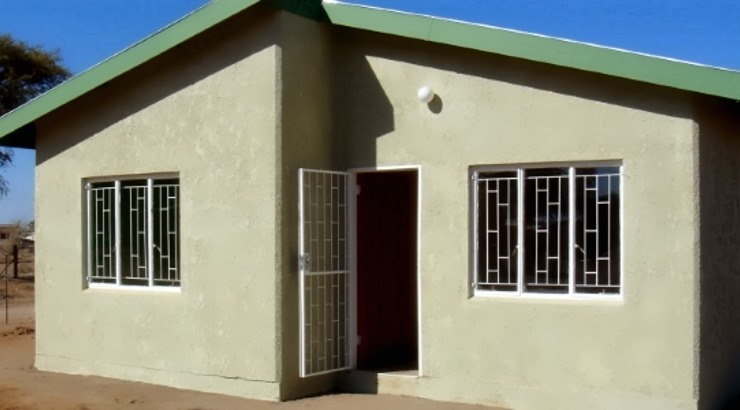Features
9 Easy Tips for Building a House Cheaply in Kenya
Easy-to-follow tips for building a house cheap and fast.

High cost of land and a scarcity of cheap building materials have complicated matters for the prospective homeowner seeking to build cheaply in Kenya.
Indeed, the average price of a low cost three-bedroom house, considered to be the ideal size for most families is Sh4.8 million, which is out of reach for most people.
Luckily, building a house cheaply in Kenya is possible for those who implement the many low-cost building ideas that are readily accessible in the marketplace.
How to build a house cheaply in Kenya
1. Simplify your house design
Picking a house plan is the first step when building a home.
While the design depends on factors such as the nature of your plot, choosing cheap house designs is easily the cheapest way to build a house.
The more complex a house plan, the more costly it will be to construct.
Keep the number of corners on the exterior walls at a minimum since they are labour intensive and heavy consumers of materials.
Cheap house designs usually stick to simple squares and rectangles which can be ornamented with fascinating architectural features such as a balcony or porch.
In addition, keep the roof lines simple and short since complex steep roofs necessitate surplus roofing supplies. Avoid making any changes to the design during construction because alterations will translate to additional costs.
2. Apply new technology
The high cost of building materials and the intensive labour that goes into building conventional houses are key contributors to the high construction costs.
In a bid to lower costs, new technologies such as EPS panels which drastically reduce the amount of material and labour have been introduced into the market.
RELATED: Kenyan Firms Bet Big on Prefab Homes
Another great option is interlocking bricks which require less cement to hold together and less labour compared to brick structures.
These technologies are readily available in the local market.
3. Hire a skilled home builder
Many people have lost money during construction due to poor workmanship. While the temptation to forgo hiring a professional may be fueled by a desire to cut costs, doing so can lead to higher costs for rectifying errors later on.
Besides, a skilled builder can help you figure out where to spend and where to save. They will probably have creative money-saving ideas as well.
RELATED: Average Cost of Building in Kenya
The use of unskilled labour has cost some homebuilders up to 40% of the total cost yet construction firms charge only a small percentage of the total cost.
4. Self-source materials
If you can, source for building materials yourself instead of sending the foreman or fundi to do it for you.
Some foremen work in cahoots with suppliers to con their employer by inflating prices of materials and backing the dishonest act with falsified receipts.
Others buy cheaper substandard materials so they can pocket the difference.
However, you will need some patience to shop around for bargains.
5. Be wary of cheap bargains
Inasmuch as you want to save some money and are shopping around for cheap building materials, watch out for deals that are too good to be true.
If a supplier is offering you products at a price way below the average market rates, exercise caution because more often than not the ‘nice deal’ is a rip-off.
The cheap materials might be counterfeit which will end up costing you more.
6. Recycle materials
Always keep in mind that every shilling is important and everything you buy adds on to the budget. Where possible hire construction tools such as spades, hammers, wheelbarrows, and wood used as scaffolding or for support during construction.
7. Do it yourself
Advocates of cheap house building ideas direct prospective homeowners to look out for construction tasks they can do by themselves to reduce site labour costs.
Laying tiles, landscaping and painting are some of the things you can do by yourself with little or no help from a contractor.
However, do not attempt something you are unsure of since as earlier indicated; rectifying mistakes will cost more than hiring a professional to do the job.
8. Close supervision
Theft of building materials and laziness by workers are other major avenues for money loss during construction of a house.
This calls for close supervision of the construction site.
In case you are busy working elsewhere, hire a site manager who will be at the site all the time and task him with accounting for how building materials are used.
RELATED: How to Choose the Right Contractor for Your Project
Avoid hiring workers at a daily flat rate since they can prolong the timeline by working slowly. Instead, formulate ways of quantifying works done and pay them for it.
9. Avoid the rainy season
Unless your site is in an urban area where roads are paved, avoid building during the wet season since rains may render roads impassable making it tough to transport materials.
Moreover, heavy rains can destroy or sweep away building materials, and they may also slow down the construction pace as workers seek shelter, thus raising your labor costs.
What is the cheapest house style to build?
The cheapest house style to build is one that adopts simple house designs and keeps the number of corners on the exterior walls at a minimum since corners are labour intensive and heavy consumers of materials.
What is the cheapest type of house to build in Kenya?
The cheapest house to build in Kenya is usually the one that sticks to simple squares and rectangles which can be decorated with stunning features such as a balcony or porch.
How can I build an affordable house in Kenya?
The cheapest way to build a house in Kenya is to adopt simple house designs, with simple brick house designs featuring prominently in list of ways to build cheaply.












